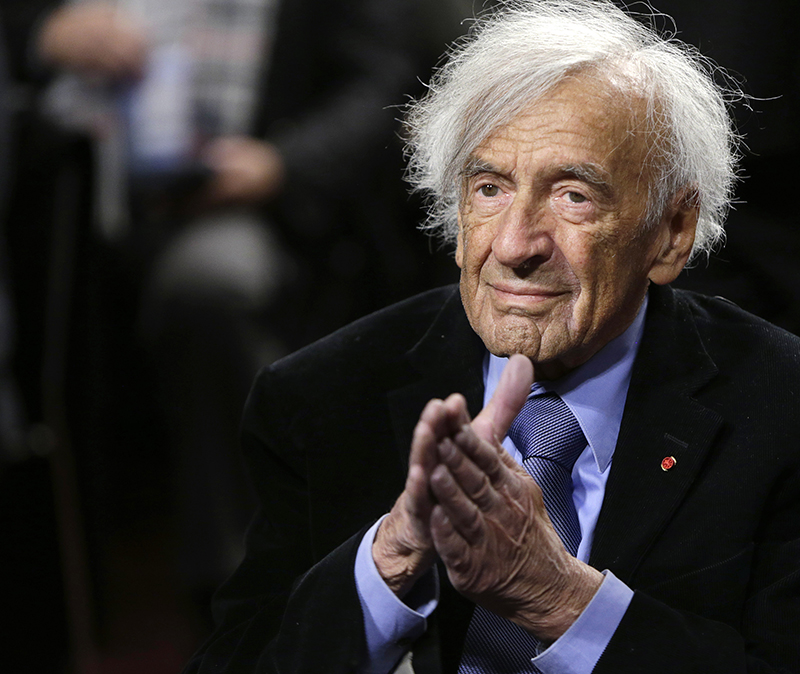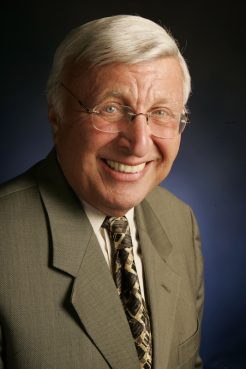
Visitors watch the sunrise from Mount Moses in the Sinai Peninsula on Aug. 10, 2009. According to the Bible, this was where Moses received the Ten Commandments from God. Photo courtesy of REUTERS/Goran Tomasevic
*Editors: This photo may only be republished with RNS-BLECH-COLUMN, originally transmitted on May 21, 2015.
NEW YORK (RNS) As Jews around the world prepare to celebrate the holiday of Shavuot commemorating the acceptance of the Ten Commandments at Mount Sinai, we are profoundly disturbed by the resurgence of global anti-Semitism. What seems not sufficiently understood is the deep connection between these two, Sinai and anti-Semitism.
The link between the two can allow us to resolve one of the most perplexing questions surrounding the history of the Jewish people.
Seven decades after the Holocaust, the hatred of Jews and Judaism has reappeared with a vengeance in the major capitals of Europe. In the contemporary disguise of anti-Zionism, once again it made its way around the world. Jews as a people and Israel as their land are once more the scapegoats responsible for all the world’s ills and the cause of all of its wrongs.
For the longest time, scholars have attempted to understand what is it about Jews that made them the focus of this obsessive animosity. As fewer than one quarter of 1 percent of the world’s population, what could possibly have turned them into the supreme villains of mankind? And how did countries with not even a single Jew become rabid anti-Semites?
The question is so perplexing that many have simply given up trying to come up with an answer. Elie Wiesel, the Nobel Prize winner and Holocaust survivor, concluded that the endurance of anti-Semitism remains a mystery; he described anti-Semitism as an “irrational disease.” The unsolvable puzzle, he said, is that “the world has changed in the last 2,000 years, and only anti-Semitism has remained. … The only disease that has not found its cure is anti-Semitism.”

Nobel Peace Laureate Elie Wiesel is seen before participating in a roundtable discussion on “The Meaning of Never Again: Guarding Against a Nuclear Iran” on Capitol Hill in Washington on March 2, 2015. Photo courtesy of REUTERS/Gary Cameron
*Editors: This photo may only be republished with RNS-SALKIN-COLUMN, originally transmitted on March 4, 2015, or RNS-BLECH-COLUMN, originally transmitted on May 21, 2015.
Abraham Foxman, national director of the Anti-Defamation League, expressed the fear that “we currently face as great a threat to the safety and security of the Jewish people as the one we faced in the 1930s — if not a greater one,” but he could find no better explanation for its persistent presence other than calling it “a spiritual and psychological illness.”
True, reasons for anti-Semitism have often been offered. Their obvious error invariably was the inherent contradiction of their explanations. Jews were despised because they were too liberal — and also because they were too conservative. They were too cheap and of course they were also too spendthrift; too passive and too pushy; too charitable and too selfish; too religious and too secular.
Pick any characteristic and Jews have been blamed either for possessing too much of it or not having it at all. Jews have been the scapegoats for the sins of every political system. Max Nordau, the great Zionist leader, had it right: “The Jews are not hated because they have evil qualities; evil qualities are sought for in them because they are hated.”
Still, that begs the question: Why?
A little over a century ago, with the beginning of the Zionist movement, Jews thought they at last had found the answer. Theodore Herzl fervently believed that it was all because the Jews had no land of their own. Stateless, they were natural victims. Only their abnormal political reality caused them to become international pariahs. No longer homeless, with Israel Jews would find acceptance and universal respect.
Yet the state of Israel has disabused Jews of Hertzl’s response to anti-Semitism. If anything, Jews with a state of their own have become far more vulnerable to the world’s hostility. Israel has the dubious distinction of being the only member of the United Nations whose right to exist is regularly challenged and whose elimination from the world map is the aim of other U.N. member states.
What then is the answer to the reason for anti-Semitism?
The rabbis of the Talmud saw it in the very name of the mountain on which the Ten Commandments were given. “Sinai” in Hebrew is similar to the word “sinah” — hatred. It was the Jews’ acceptance of a higher law of morality and ethics that was responsible for the world’s enmity.
Jews were the first to preach the message of the Ten Commandments, that worship of God includes the second tablet of respect for fellow mankind. As the mother religion of both Christianity and Islam, Judaism pioneered the ideal of the holy and the human need for acting in accord with divine law. But anti-Semitism stands in opposition to the very idea of civilization. It detests Jews because it acknowledges that Jews are the conscience of humanity and the lawgivers of ethical and moral behavior.

Rabbi Benjamin Blech, professor of Talmud, Yeshiva University. Photo courtesy of Yeshiva University
Amazingly enough, Adolf Hitler dared to verbalize it as justification for his plan for genocide of the Jewish people: “Conscience is a Jewish invention like circumcision. My task is to free men from the dirty and degrading ideas of conscience and morality.”
As Jews prepare to celebrate the reception of the Ten Commandments, anti-Semitism ought to be viewed as a badge of honor. Jews are hated not because they are bad but because they persist in reminding the world of what it means to be good. Anti-Semitism is nothing less than a visceral reaction to the cry of a guilty conscience.
(Rabbi Benjamin Blech is professor of Talmud at Yeshiva University in New York.)
KRE/MG END BLECH




